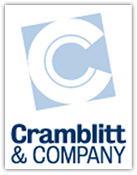Editing: The misplaced art (2)
July 21st, 2009
This is part 2 of a primer on editing. Much of this comes from a Folio magazine seminar taught by Peter Jacobi more than 25 years ago. Jacobi is now professor emeritus at the Indiana University School of Journalism.
What to avoid
Delaying the subject in a sentence
Bad: The goals and objectives of writers…
Good: The writer’s goals and objectives…
The passive voice
Bad: The purchase of hardware is a tedious chore.
Good: Buying hardware is tedious.
Excess adjectives
Bad: The Internet-enabled, scalable and robust X14AB is a good tool.
Good: The X14AB works on the Internet and is able to expand to fit users’ needs.
Hyperbole
Few actions are outrageous, cities are rarely paralyzed and very few things are vital.
Clichés
Trash high-scalability, high-performance, highly interactive, state-of-the-art and other meaningless phrases.
Pretentious language
Away with paragon, parameters, debilitate, facilitate.
Newly minted “verbs”
In general, any word with “ize” and “ate” at the end could be dangerous. Don’t
synergize, hypothesize, strategize or caffinate.
Needless words
“he is a man who hunts” should be “he hunts”; “the fact that” is a term we can do without.
Exclamation points
Except for “World at War!,” there are very few causes for this punctuation.
Using quotations for easily documented facts
“PlutoView costs $3,000 for a license,” says Joe Magnum.
Backing into sentences
Bad: When it comes to electronics, he is an expert.
Good: He is an electronics expert.
Non-sequiturs
His hair flowed majestically, making him a good candidate for the space program.
What to embrace
Direct, short sentences
Repetition, if it makes a sentence simpler
Common words used in a conversational tone
Reinforcing messages by phrasing them in different forms
Using a semicolon for forcefulness:
Her romances are entertaining; they are full of exciting adventures.
Being specific:
Bad: They work on computer models containing millions of polygons.
Good: They work on computer models containing 10-million polygons or more.
Sentences in positive form:
Bad: He was not very often on time.
Good: He usually came late.
You have the power…be good with it
Editing gives you the power to shape messages in a way that will interest, inform and entertain your readers. Power has its responsibilities, of course. You must be a benevolent ruler, always keeping in mind the needs of your readers and being gentle with your writers. May the editing force be with you.
References:
The Art of Editing, Floyd K. Baskette and Jack Z. Sissors, 1971, The Macmillan Company, pp. 418-419
The Associated Press Stylebook and Libel Manual, Addison-Wesley Publishing.

